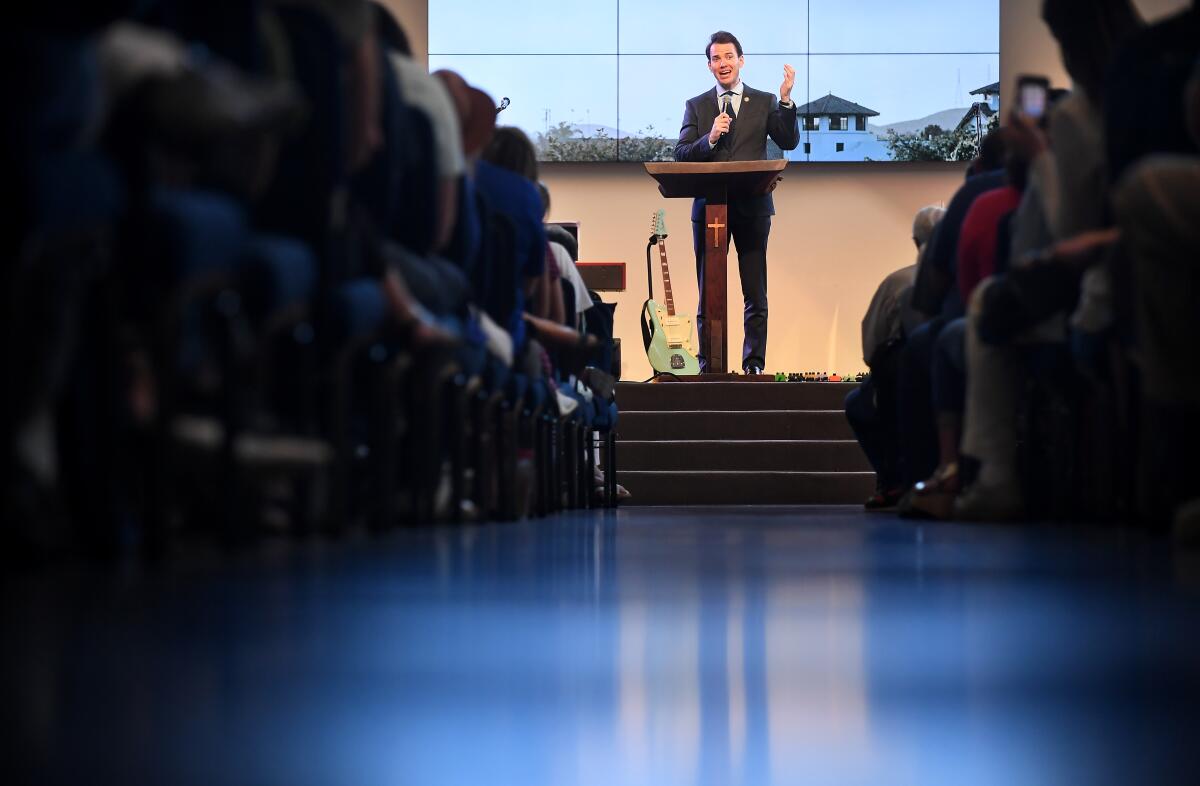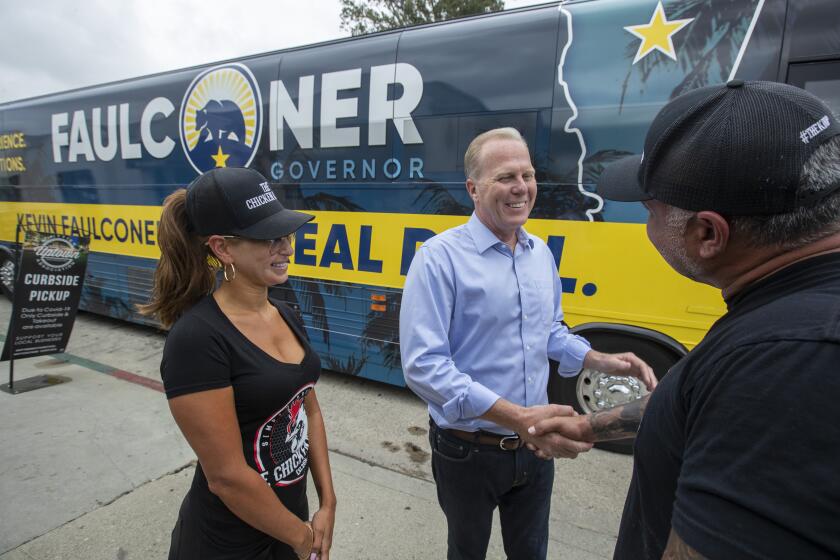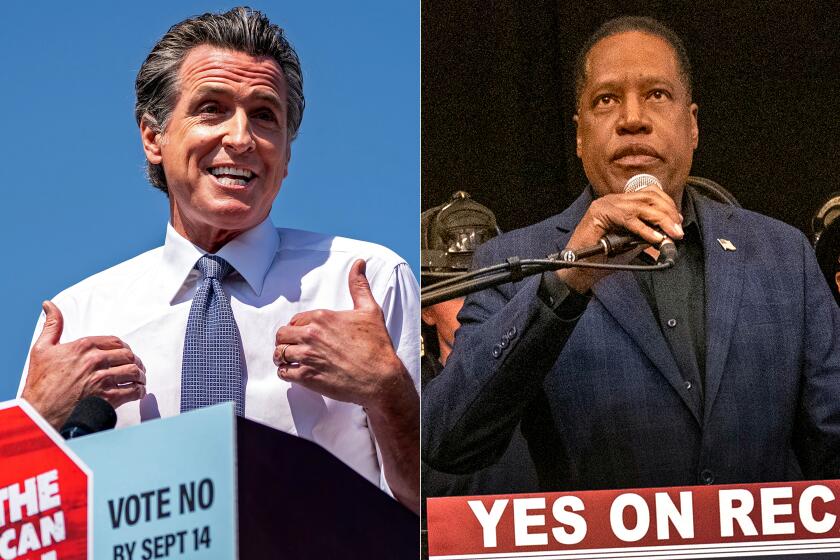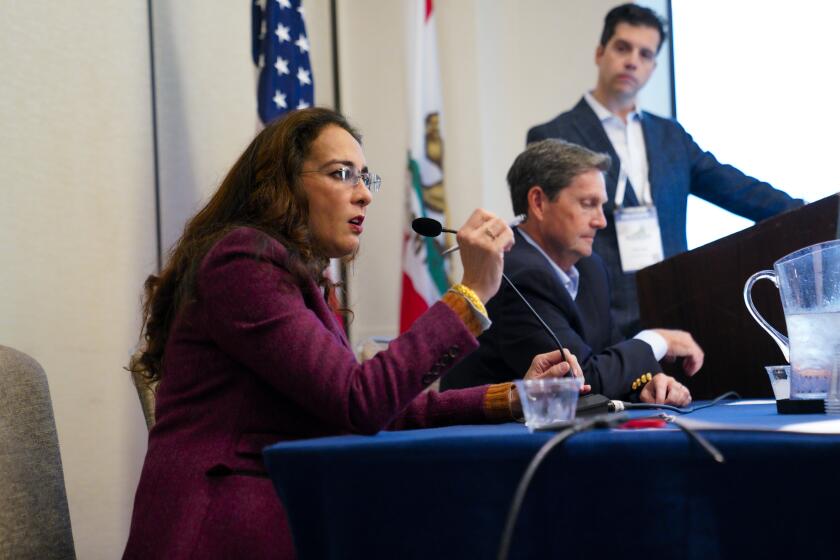Letters to the Editor: Why are pro- or anti-recall churches allowed to keep their tax-exempt status?

- Share via
To the editor: Political activism springing from a church can be a constructive connection with society or a dangerous undermining of the social fabric, depending on how it is carried out. Political advocacy from the pulpit is as dangerous as any demagoguery when it attacks a legitimately elected leader or justifies supporting a cause or politician that is actually antithetical to a faith’s professed values. (“Prayer and politicking: Churches become a center of the California recall campaign,” Sept. 7)
To support a corrupt authoritarian like former President Trump, many supposed Christians had to twist their teachings into a hideous pretzel of illogic. They’re doing the same now in the recall.
We live in a secular society, not a theocracy. The requirement that churches refrain from taking political stances if they wish to maintain their tax exemption is about more than just giving them an advantage. It serves to prevent religious institutions from competing with government institutions for ultimate authority — an authority granted by the entire citizenry based on the common good.
The article quotes a university professor as saying, “We obviously live in an era of incredibly complex political speech.” Nonsense. We live in an era dominated by incredibly simple-minded political speech — the fiery incitement speech of demagogues and con artists.
Such dangerous figures are guilty of spouting disinformation and inflaming the grievances of the bigoted, whether they do so in political rallies or in churches.
T.R. Jahns, Hemet
..
To the editor: Your article on gubernatorial hopefuls making their political pitches from the pulpit clearly shows why churches should not have tax-exempt status.
When a pastor invites partisan politicians of any party to address parishioners, it is a clear violation of the separation of church and state.
These churches and their leaders have every right to express a political opinion, but they should lose the privilege of tax exemption when they blatantly disregard the U.S. Constitution’s Establishment Clause.
Carole Merl, Encino
More to Read
A cure for the common opinion
Get thought-provoking perspectives with our weekly newsletter.
You may occasionally receive promotional content from the Los Angeles Times.









